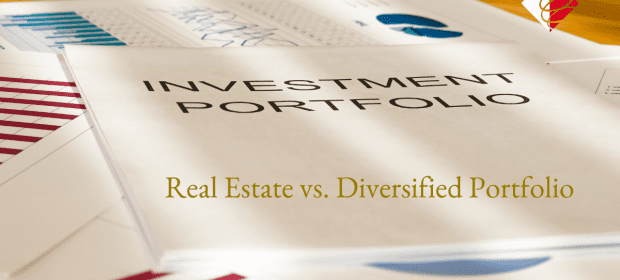Cash flow planning is an exercise which could benefit individuals of any age, be it people just starting out their independent lives or others approaching retirement. Understanding how much money you have and the best way for you to use it is vital, and many seem to underestimate the power of good, constructive planning.
Cash flow planning
By Jozef Spiteri
This article is published on: 13th March 2023

It is important to consider how surplus money can be used more efficiently. Surplus money refers to reserves of cash over and above any emergency fund held in a bank account. How can one use these resources more efficiently? What difference will it make?
Keeping excess funds in cash will result in the value of that money being eroded, as no meaningful growth will be achieved. Therefore, one must find a way to grow this money and protect it against inflation by generating positive real returns.
For many, investing might seem unnecessary, complicated, or risky. Such a mentality is usually the result of misconceptions. The reality is that the current environment is not what our parents or grandparents experienced when growing up; what worked 20 or 30 years ago might not work as well today.
We will now compare three scenarios for the same person. These examples will indicate the level of savings this individual would have at retirement if keeping all savings in cash, investing in a balanced risk portfolio or investing in a more adventurous portfolio.

In this example we have John, an average working man who went to university until age 25 and then worked until age 68. John started off with an average wage at the beginning of his career, with limited income and unable to buy a property or secure a sizeable mortgage. In his late 20’s he then managed to take out a mortgage for his own place. He only started to earn a decent level of income in his early 30’s, and this is the point at which he had to choose between investing this income or saving in cash. Therefore, John had the ability to save and invest for around 35 years prior to retirement. Let us now see what the differences are if he chose to invest or not.
If John left all surplus income in cash, he would reach retirement with a savings pot of €911,186. This means that he will have to plan his cost of living based this amount, together with the lowly public pension he will earn, until he passes away. If John were to spend around €40,000 a year (in today’s money) from his savings in retirement, the money would last him around 22 years. This is assuming that John is only maintaining his lifestyle and not accounting for eventual medical costs which could arise, or other unforeseen expenses. Therefore, what might seem to be a substantial amount of cash does not really give John a lot of ‘wiggle room’.
Let us now consider a balanced risk portfolio for John, starting contributions at age 32. If John were to invest around €20,000 a year until retirement, growing at an average rate of 4% per year, he would accumulate a savings pot of €1,375,757. This would give John an additional €464,571 compared to the scenario where he saved in cash, with the added advantage that the money invested will offer further growth potential during retirement, allowing him to maintain a buffer, further extending the longevity of his funds.
Alternatively, if John were to consider a more adventurous portfolio, with the same level of contributions and years of investment, his eventual savings pot would achieve a value of €1,845,763 – nearly a million euros more than if he chose not to invest at all.
This example highlights the power of compounding returns, and the importance of good financial planning. This is a service we offer all clients and together we can identify the best way to meet your goals. If you would like to discuss your financial future, feel free to get in touch.
The above are simplified examples and for illustrative purposes only. For a more detailed outline of how we implement successful investment strategies, please contact us to arrange an introductory discussion.
Bonds – still a low-risk investment?
By Jozef Spiteri
This article is published on: 5th May 2022

Are bonds going out of fashion?
Bonds, which are fixed income instruments, are probably one of the most popular asset classes along with equities, and have been used by organisations to raise funds for many years. Because these instruments pay regular interest (coupons), they are attractive to investors, but are bond investments really as good as people think they are?
Let’s begin by defining what bonds actually are. A bond is a debt instrument, meaning that the organisation that issues them, be it a government or a private corporation, is obtaining a loan from the general public. The reason for opting to get a loan from the public rather than a traditional bank is simple; they will pay less interest making it a much cheaper method to finance a project. An example of a bond would be one maturing in 10 years’ time, paying an annual interest rate (coupon) of 2.5%. This simply means that if an investor had to purchase €1,000 worth of this bond issue, they will receive €25 per year for 10 years and they will get the initial amount (principal) of €1,000 back at maturity. The fact that money is being received every year tends to deceive investors. The truth is, for a coupon as low as 2.5% they will just be moving in line with inflation, which has been around 2-3% in recent years and has started to creep up in recent months. This means that with such an investment they are not adding value to their wealth and actually risk losing value.

After reading this you might be wondering what investments could help you beat inflation.
Over the past 10 years the asset classes that have performed the best have been US equities and REITs (Real Estate Investment Trusts) (www.blackrock.com/corporate/insights/blackrock-investment-institute/interactive-charts/return-map).
Debt, or bonds, has been one of the weakest performers across the board, and this has contributed to the fall in popularity of this asset class. The best approach would be to invest in a diversified basket of assets with well-established fund managers, with a track record of good returns. This will not only reduce the risk of bad performance and value destruction thanks to inflation, but will also give you exposure to higher returns.
If you are interested in discussing this matter further, or any other topic, feel free to reach out to one of our advisers. We will be more than happy to sit down with you and go over all the questions you might have.
We do not charge any fees for our initial consultations and there is no obligation to proceed further.
Real Estate vs. Diversified Portfolio
By Jozef Spiteri
This article is published on: 26th April 2022

Owning property is important to many people and is probably one of the first goals of young adults once they enter the working world. People in their twenties and thirties usually make their first real estate purchase for residential reasons, sometimes renting a room out to generate some extra income. When people enter their mid to late forties, especially in Malta, they tend to start considering purchasing more property, this time as rental investments. This is what I will be looking at more closely in this article.
In the past, the main aim of people entering the latter end of their working lives was to accumulate as much property as possible to be able to live comfortably off the rental income generated. That doesn’t sound like the worst idea in the world, especially if you have the means for it. The more property one has, the more income is coming in and the risk of being caught out with periods of no rental income decreases. A question no one seems to ask though is, “What return am I really making?”

This is a question I have been asked quite a few times, and I will make use of a numerical example. Imagine someone has €1,000,000 laying around to invest in property. This could potentially be enough to purchase 4 apartments valued at €250,000. Assuming this investor has these apartments rented out all year round on a long-let basis earning him €1,000 per month each (€4,000 total), the annual return made would be 4.8%. This is assuming there are no months where an apartment is vacant and not taking into consideration maintenance costs and taxation; which means the net return can be substantially lower.
Is there an alternative though? One solution to the real estate approach is building up a portfolio invested in a diversified selection of assets. Such portfolios include property too, but they also allow exposure to many other asset classes which will help increase returns. The advantages of such an approach do not stop at the increased returns. Clients will not have to deal with the headache of maintaining their investment as they will have investment managers doing that for them. Another plus is that investment portfolios are more liquid than real estate and investors can take money when needed, leaving the rest of their funds in the portfolio to continue growing for them.
If you are interested in having a discussion and need some guidance on what your next steps should be, feel free to reach out to us. All our first consultations carry no charge and there is no obligation to proceed further.
Real estate in Malta
By Jozef Spiteri
This article is published on: 2nd March 2022

One asset class which the Maltese are very fond of is real estate. This love has been passed down from previous generations, which saw the value of their properties rise and rise as the years went by. Even though real estate remains a solid asset, individuals who are looking to start their investment journey must understand that the market today is far removed from where it was 50 years ago. Let me explain.
In the mid to late 20th century, Malta was still very underdeveloped, slowly recouping from the devastation suffered in the second world war. As the baby boomers grew up and became young adults, and expats, particularly from southern Italy, made their way to the Maltese islands, demand for property started to grow. Many Maltese realised that an opportunity was on the horizon and several local entrepreneurs began to buy land and develop it. The initial outlay was relatively affordable, even for those days, with sales or rents practically guaranteed for the newly erected properties. Realising how lucrative this market was, more inhabitants started investing in property and for most individuals this became the perfect investment which would see them, at the very least, retire comfortably.
Fast forward to 2022 and property in Malta has become very expensive and relatively scarce. Prices continued to soar, partly due to the constant increase in demand, but also the lack of regulation which encouraged property sales at high prices, contributing to the inflated valuations we see today.
What does this mean for young adults who are looking to buy their first piece of land/property? Coupled with the high interest rates being charged by Maltese banks for mortgages, and below average salaries earned in Malta, this market has become very difficult to access, and those who do manage to strike a deal will still see themselves paying very expensive loans for many years, hindering further investment for quite some time.

Is there an alternative investment solution?
This is where a suitably experienced professional adviser can help, by thoroughly analysing your current financial situation together with short and longer term intentions, and then proposing appropriate, flexible planning solutions. At The Spectrum IFA Group, we provide our clients with easy access to a wide range of investment options matched to individual circumstances.
If you are interested in further understanding what we do, feel free to contact us. Initial consultations are free of charge and there is no obligation to proceed with our suggestions.
The importance of retirement planning
By Jozef Spiteri
This article is published on: 1st March 2022

We are living in a world characterised by innovation in all fields, especially in medicine and healthcare. This vast improvement, the fruit of research and technological development which is ongoing, has contributed to a substantial increase in our life expectancy.
Since people are living longer, it is vital that the funds they build up throughout their working lives will be sufficient for them to live comfortably long into retirement.
Life expectancy for women currently stands between 80 and 83 years, whilst that for men is between 75 and 78 years, far greater than even 10 to 20 years ago, and this will continue to increase as developments in the medical sector continue. With the current retirement age standing at 65, this means that individuals must have enough savings to last for 10 to 15 years, and most likely these funds have to last even longer.
Another point to take into consideration is the lifestyle one wishes to lead when retiring and the other costs which come along with old age, such as medical and care costs. Taking these points into consideration, you may be wondering about the the best course of action to create enough wealth to cover your needs and desires in retirement.
The best way to start is to ensure that you do not keep funds in a bank account . Whilst having a cash reserve set aside is important for any emergencies which could arise, having excess funds sitting idle is a killer to the real value of that money (as in our previous article about protecting your wealth). As inflation continues to increase, the value of money earning low interest rates in savings accounts is declining, and this is why something should be done to counteract this issue.

One possible solution is investing these funds in a diversified portfolio of assets which, in the long run, will produce a return higher than inflation rates (read our article on investment performance here). This will not only protect your hard-earned cash, but it will add value to it, with the aim of providing financial security later in life and to allow, if you’re so inclined, numerous holidays around the world (or to other planets, who knows) after you retire.
Our advisers will be able to give you personalised, informed advice, to find the best possible solution for your circumstances. The service will be ongoing and adjustments can be made as your situation changes. This is something we are proud of, making sure that we are there for all our clients throughout their investment journey. All initial consultations are free of charge and carry no obligation to proceed.
Investment performance and reliability
By Jozef Spiteri
This article is published on: 20th January 2022

Investment decisions can be confusing; there are just so many options! The most important thing to check is that the assets selected suit your profile and needs, and that the company handling your money is financially sound with a solid reputation. One range of funds we find works consistently well for our clients here at The Spectrum IFA group is from Prudential International. These funds are called PruFunds.
PruFunds start off by spreading investments across different asset classes. The various funds on offer contain assets such as equities, bonds, property, commodities and cash. This balances the performance of the funds as a whole, avoiding the volatility that comes when money is invested in a single asset class. This is known as diversification. All PruFund funds are managed by Prudential’s specialist and highly successful multi-asset portfolio management team. The size of these funds allows Prudential to invest in a wide range of assets globally and across many economic sectors, further adding to the diversification.

The second notable and valuable feature of PruFunds is its ‘smoothing’ mechanism. The particular attraction of the smoothing process is that investment profits are held back from market highs to protect your investment from suffering the full lows of market crashes. A steady return is something most investors greatly appreciate.
PruFunds are widely recognised for strong long-term investment performance, reliability of returns and insulation from stock market volatility. This protection from volatility, achieved through the risk-managed smoothing mechanism, is a feature of the funds which is particularly appropriate for investors seeking a balance between capital growth and preservation.
This is just a taste of what PruFund has to offer. If you have further questions, or wish to have a closer look at the various fund options available, feel free to contact us. Our initial meetings are free of charge and entirely without obligation.
Find out more about the PruFund here
Investment options
By Jozef Spiteri
This article is published on: 18th January 2022

Trust in the financial sector
Choosing investments can be daunting to someone who does not have a good understanding of financial matters. It is normal to feel intimidated when facing something you don’t understand, and it is a reaction many people have when considering investing their money.
For these people, the ideal investment is often something they can see and touch. Such investments are usually the purchase of property to let, or the establishment of some sort of business selling goods or services. Done correctly such ventures can be very profitable, but these types of investments require a lot of time and money, so they might not be suitable for most people.
An alternative is investing in financial markets, but how can you overcome the mental block when attempting to allocate your money? The best first step is to consult an adviser who will walk you through the key points of such investments, explaining the potential risks and also rewards of different investment options, and who will take the time to come up with the correct solution for you.

However, the most important step to get more comfortable with financial markets is to actually start investing. An analogy I like to use is of a person who has never been swimming, fearing that something terrible would happen if they were to get into the water. Typically, they would start by dipping their toes and legs in, getting a feel for this un-chartered territory. Once they feel comfortable, they will continue to walk further out, until eventually they will be completely at ease in the water. This is the approach new investors should take when looking to enter this “new world”.
If you are feeling confused or overwhelmed with all the different investment options available to you, feel free to reach out to one of our advisers. In the initial meeting we will be able to help you understand better what will suit you best and can answer all the questions you might have. All initial meetings are free of charge and there is no obligation to proceed with an investment.
Investment diversification
By Jozef Spiteri
This article is published on: 12th January 2022

A word which seems so simple, a concept that many think they can easily master, but do you fully appreciate what diversification means? If you check the meaning of diversification, you would find that in business terms it is usually the act of varying the range of products or services offered, or broadening the field of operations. In investment terms it has a similar meaning. Diversification involves spreading your money across different assets and asset categories.
Most of the time when people tell me that they are investing and I ask them if they have Investment diversification, I am met with a resounding “Yes, of course”. They then might go on to explain what they invested in and it is usually things which they would have come across on social media or heard about from another “investor”. These portfolios might comprise shares in a few US companies, a couple of US bonds and possibly some cryptocurrency for a touch of risk. Such a portfolio would seem OK to someone who had just begun investing some spare cash, but is it diversified?
Such a portfolio is not really diversified at all, and I will explain why. Starting off with the first part which is an investment in a few different shares. Firstly, they are all from one geographical region, meaning if something dramatic happened in US stock-markets, they would probably all be affected to some extent. Secondly, inexperienced investors often buy shares based on something they have read online or something they have heard from a friend or colleague. These investments are typically in growth stocks, in other words shares in companies which are perceived to have strong earnings potential and growth prospects, but often with a correspondingly high share price. Investing exclusively in this type of company may prove successful but also carries significant risk, as the expectation of highly profitable growth (sometimes reflected in an inflated share price) may not be realised for many years, if at all. This is why it is sometimes sensible to include more mature company shares in a portfolio, or possibly shares in a company paying good and sustainable dividends.

Moving on to the bond part of the portfolio, often this would be one or two bonds issued by the US government, maturing in say 10 years. It might also include a corporate bond to add a little bit of diversification. But how much attention has been given to the financial strength of the company issuing the bond or the bond’s yield to maturity (how much is received in regular income up to the date the bond matures). These are just a couple of basic questions that should be asked when considering direct investment in a corporate bond.
This brings us to the cryptocurrency portion of the portfolio, often consisting of holdings in popular names such as Bitcoin or Ethereum, or in a new ‘crypto’ trending online. Although I have nothing against a small allocation to cryptocurrency, it should always be treated as speculative with the likelihood of volatility and a high risk of capital loss. I sometimes question whether people investing in cryptocurrency understand the basics of this asset class, including its regulatory status and its ability to function as a currency. To read more about cryptocurrency – click here
One question all investors should be asking about diversification is how to achieve maximum returns with minimum risk. Or, put another way, how to make the most of their money without jeopardising their financial security. A well-diversified portfolio should include exposure to a range of asset classes, for example shares, bonds, property, commodities and cash. Investments should also not be restricted to a single country or geographic region, nor to a single theme or economic sector.
In practice, most people do not have the time or knowledge required to build a well-diversified portfolio which achieves the right balance between risk and reward, between capital growth and capital preservation. At Spectrum, on behalf of our clients, we therefore focus on identifying professional investment managers who specialise in maximising returns from efficient portfolio diversification.
If you have any questions regarding asset diversification and investment returns, our advisers are available to help. We do not charge fees for initial consultations and you have no obligation to use our services after meeting us. Please get in touch to learn more.
Cryptocurrency versus Regulated Funds
By Jozef Spiteri
This article is published on: 10th January 2022

Patience is a virtue, but in today’s world this is sometimes forgotten as people try to do as much as possible as quickly as possible. This approach is often also applied to investing – trying to get rich quick – but this can result in flawed investments which may result in losing money. An asset class which has been used this way over the past year is cryptocurrency, with its rollercoaster ride making and breaking fortunes.
Still a relatively young asset class, cryptocurrency first gained traction with the Bitcoin boom in 2017 and were again very much in the news in 2021. The value of Bitcoin shot up making those who had held the coin for years very rich. As often happens, the opportunity attracted much attention, leading to the increase in popularity of alternative coins such as Ethereum and Litecoin, and the creation of numerous others.
But what is cryptocurrency? Cryptocurrencies are digital currencies which permit automated transaction recording and record maintenance by a decentralised system, using cryptography, as opposed to using a centralised, regulated authority to keep the accounts. They are based on blockchain technology, which is an important innovation in itself with potential uses in a multitude of applications across all industries. But a key point to remember before you buy cryptocurrencies is that they are currently unregulated by any authority, which means that their value can be manipulated and safety cannot be guaranteed. This is the main reason why most financial advisers rarely recommend this asset class to their clients.

So, what do financial advisers prefer to recommend to clients? International financial advisory firms, such as Spectrum, have access to a wide variety of providers offering regulated funds to create a fully diversified portfolio across a range of asset classes. One such example is Prudential International’s PruFund range of funds, one of the largest and most secure investment portfolios available to expatriates globally – (watch the video explanation here)
An advantage of this well diversified investment is what is termed as its ‘smoothing’ effect. Simply, this means that by being invested in such funds you will not experience the full extent of stock-market highs and lows. The smoothing feature protects investors from the extremes of market volatility, providing investment growth that is smoother and steadier.
The most important requirement for investment success is patience. An investment portfolio should therefore be created with a long-term outlook, prioritising assets that are regulated and in line with your risk profile.
Please contact us to learn more about investing patiently and successfully.
Do I need a financial adviser?
By Jozef Spiteri
This article is published on: 30th December 2021

What exactly does a financial adviser do?
Do you have a good idea of what a financial adviser does? Some people think we are accountants, others think we are regular bankers or even stockbrokers. Well, I can start by saying that we are none of the above and here I will briefly outline what we actually do.
A financial adviser is quite simply a professional guide and planner for your finances. We take a broad view of your personal and financial circumstances, looking at your current position together with immediate and longer-term needs and goals. During an initial consultation, we try to get to know you, to understand your priorities and plans.
Once we have a clear idea of your intentions, we then move on to examine your existing finances, including assets, liabilities, income, expenditure and how much money should be held in reserve for unforeseen expenses. Protection planning will also be addressed – do you have sufficient life insurance to protect your family and is your income safeguarded against serious injury or illness?
We then consider how much should be set aside for long-term investment and retirement, whilst exploring the most suitable solutions for your circumstances. As part of this exercise we complete a questionnaire which helps determine your investment objectives and attitude to risk, allowing us to propose an appropriate investment strategy. This might focus on capital growth, wealth preservation, generating a regular income, or a combination of all three.
The final step is implementing the financial plan by completing application paperwork and arranging transfer of funds to the institution(s) responsible for managing your investments.
Beyond this initial advice we arrange regular updates and review meetings, providing ongoing service to ensure that our original recommendations are always aligned with, or where appropriate adapted to, changes in your circumstances.
This is a short summary of our advice process. Quite straightforward, right?


